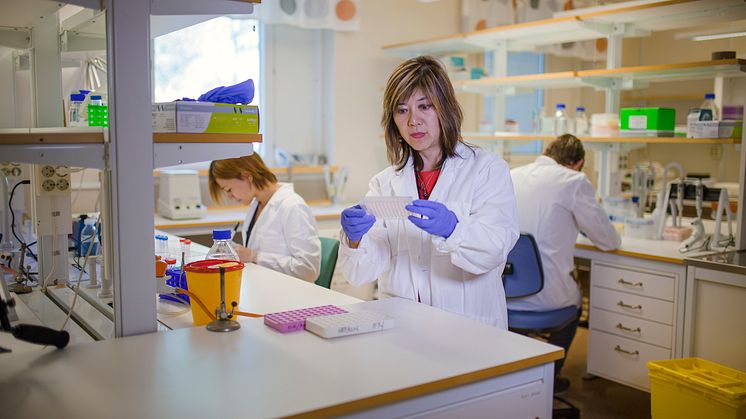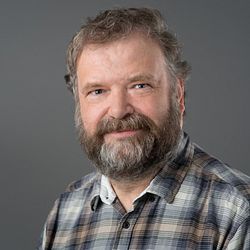
Press release -
Discovery may open new way to attack prostate cancer
A special protein can play a key role in the fight against certain types of prostate cancer. This is shown in a study by an international research group led from Umeå University, Sweden. Until now, treatments have involved blocking the protein in question that builds a so-called signalling pathway, but now the researchers show that by instead doing the opposite and activating the protein and signalling pathway, the cancer is counteracted.
"Our results show that by activating the signaling pathway, not only does the growth of the tumour be slowed down, but the immune system is then stimulated to actively fight tumour cells," says Lukas Kenner, visiting professor at the Department of Molecular Biology at Umeå University.
The protein in question is called glycoprotein 130, GP130. It acts as a receptor on the surface of cells. When the GP130 is activated, it sends signals inside the cell via a chain of events, a signaling pathway, that controls how certain genes are expressed.
A special molecule that is activated by this signaling pathway is called STAT3. It is a so-called transcription factor; It acts as a switch that turns genes on or off, and it thus affects how the cell behaves. The STAT3 molecule plays a critical role in the development and spread of tumor cells. Consequently, research has hypothesized that blocking GP130, thereby disrupting the associated signaling pathway, would inhibit STAT3 activity and, in turn, suppress cancer growth.
Surprisingly, the current study shows the exact opposite. The researchers instead activated GP130 and with it the signaling pathway in the prostate of genetically modified mice. They could then see that the result was that the growth of the tumour was clearly slowed down in the mice due to the activation of Stat3. Studies of tissue samples from prostate cancer patients also supported these results. There it was possible to see that those high levels of GP130 positively correlated with better survival.
"In the long term, this opens up the possibility for a promising new treatment option for mainly certain forms of aggressive prostate cancer that are currently difficult to treat," says Lukas Kenner.
The researchers are now proceeding with more studies to be able to confirm the results. More research is needed before we can test the method in studies on patients. The study has been led by Lukas Kenner, visiting professor at Umeå University, together with Stefan Rose-John, at the University of Kiel, Germany. The Swedish part of the research group has also been led by Jenny Persson, professor at the Department of Molecular Biology at Umeå University.
The study is published in the scientific journal Molecular Cancer.
For more information, please contact:
Lukas Kenner
Phone: +46 90-785 67 35
E-mail: lukas.kenner@umu.se
Jenny Persson
Phone: +46 90 785 08 14
Mobile: +46 706 39 11 99
E-mail: jenny.persson@umu.se
About the study
Cell-autonomous GP130 activation suppresses prostate cancer development via STAT3/ARF/p53-driven senescence and confers an immune-active tumour microenvironment Christina Sternberg, Tanja Limberger, Martin Raigel, Karolína Trachtová, Michaela Schlederer, Desiree Lindner, Petra Kodajova, Jiaye Yang, Roman Ziegler, Heidi A. Neubauer, Saptaswa Dey, Torben Redmer, Stefan Stoiber, Václav Hejret, Boris Tichy, Martina Tomberger, Nora S. Harbusch, Simone Tangermann, Monika Oberhuber, Vojtech Bystry, Jenny L. Persson, Sarka Pospisilova, Peter Wolf, Felix Windberg, Sandra Högler, Sabine Lagger, Stefan Rose-John, Lukas Kenner
doi.org/10.1186/s12943-024-02114-8
Topics
Umeå University is a comprehensive university and one of Sweden’s largest higher education institutions with around 38,000 students and 4,600 staff. We have a diverse range of high-quality educational programmes and research within all disciplinary domains and the arts. The University offers world-class educational and research environments and helps expand knowledge of global significance. This is where the groundbreaking discovery was made of the CRISPR-Cas9 gene-editing tool, which was awarded the Nobel Prize in Chemistry. At Umeå University, everything is just around the corner. Our tightly knit campus makes it easy to meet, collaborate and share knowledge, something that encourages a dynamic and open culture.


